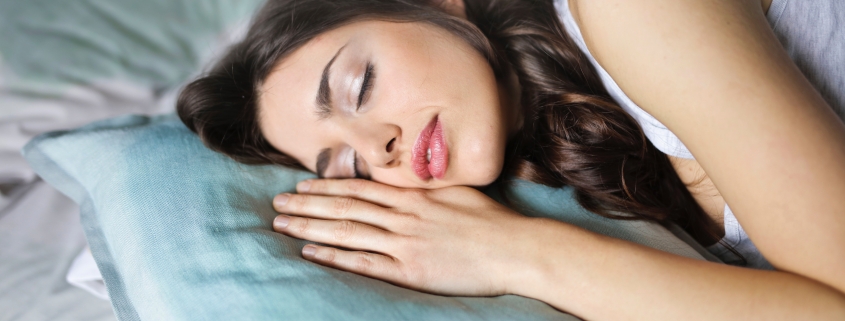5 tips for a great night’s sleep
“Sleep is the greatest legal performance enhancing drug that most people are probably neglecting” Dr Matthew Walker Sleep Expert and Neuroscientist
Nothing can quite beat a good night’s sleep … but how many people feel they have a decent night’s shut-eye every night? I have over the years going from port, then as a pilot to having mandated rest periods as we knew our performance dropped (and we would be more dangerous) without sufficient sleep. As a father to 3 youngsters under 8? Well read on!
Probably very few, with many waking up after a night’s disturbed sleep feeling bleary-eyed and listless the next morning.
Let me introduce you to sleep hygiene, a term to describe the different practices and habits necessary to have good night-time sleep quality and full daytime alertness.
Insomnia can be a real problem for some … but trying to get that ‘good night’s sleep’ is something everyone yearns for yet remarkably few achieve night in and night out. Many have fallen into bad sleeping habits which range from going to bed too early to working right up to a few minutes before they turn in for the night. The mind doesn’t automatically shut down when you think it’s time for bed. “The WHO has decided to classify any form of nighttime shift work as a probable carcinogen”
The problem is that many people simply try too hard to get off to sleep and can easily commit some basic mistakes while struggling to do so.
The good news is that the solutions are simple and can be highly effective. Basically, only try to sleep when you feel really sleepy and don’t disrupt your sleep patterns once your body has slipped into an effective sleeping routine.
Many people will have an early night if they’ve a big day the following morning – everything from a job interview through to competing in a sports event. Trouble is, when they turn in early they may not be sleepy. So, once between the sheets or under the duvet their mind quickly gets into thinking mode about the day to come … and then the mind starts trying to tell itself to go to sleep when it’s really not ready.
That’s when it becomes a real problem. Sleep’s not something you can turn off and on. The body has to be sleepy to fall into a deep slumber and the key here is that it’s not the quantity of sleep but the quality that counts. Six hours decent kip will leave you feeling way better than 8 hours tossing and turning. “Sleep is the greatest legal performance enhancing drug that most people are probably neglecting”
In fact, many sleep researchers believe you get most benefit from your first 3 hours of deep sleep. So make sure your body and mind has hit what’s known as a high sleep drive before your head hits the pillow, which means you’re absolutely ready to sleep. When it comes to sleep, the mind and body can’t fool themselves. If you’re not sleepy you’ll probably struggle to nod off into a deep slumber whereas if your eyelids are truly drooping and you’re struggling to keep your eyes open then you know it’s the right time to hit the sack.
A low sleep drive means you may well be heading for a restless night as you were never really ready to sleep in the first place and that’s only going to lead to sleep anxiety. Remember, the degree to which you feel rested depends on how much deep sleep you get, not how long you’re in bed.
“Regularity is most important – go to bed, and wake up at the same time every day” Sleep needs a routine and you can mess that up simply by having a lie-in at the weekends. For many, if they wake up on a Saturday and Sunday at the usual time they’d get up on a weekday but then keep dozing they’ll often end up feeling fuzzy-headed. In short, think of it as sleep jet lag. That dozing has done more harm than good. It may not be what you want to hear but it’s best to wake up at the same time each morning whether that be a weekend or a weekday.
A real issue happens if your sleeping is becoming so bad you then start to associate your bed with wakefulness, a condition known as Problematic Sleep Conditioning. That’s why it’s crucial to only go to bed when you’re genuinely sleepy. If you can’t sleep then it’s pointless staying in bed worrying about it. Get up and do something you find relaxing until you feel sleepy again.
You may come home tired but that’s different from being sleepy. Don’t confuse the two. Tired means you may feel fatigued or exhausted but sleepy is a very specific term for when your body is ready to fall asleep.
To get into that mode you need to glide down what’s dubbed the sleep runway – genuinely unwinding and relaxing so both the body and mind are ready for sleep. Everyone will find their own triggers for this but you normally can’t beat reading a good fiction book in bed – certainly nothing too heavy or newsy that may set your mind off again. You could even listen to an audio book.
“We are a dark deprived society in this modern era” – this lack of darkness is destroying out quality of sleep. For others, watching TV, simply listening to music or doing yoga or meditation will do the trick. The more cluttered your mind is with the troubles and pressures of the day, the longer the runway you’re likely to need to wind down. Relax the mind by gently distracting it – looking at your mobile phone, iPad and other electronic devices may stimulate it and there’s even a suggestion that the light from these screens can have a negative impact on sleep.
And forget drinking yourself into a good night’s sleep. While alcohol is well-known to help you fall asleep faster, too much close to bedtime can disrupt sleep in the second half of the night as the body begins to process the alcohol.
But do think about getting a bit more exercise into your life. As little as 10 minutes of aerobic exercise, such as walking or cycling during the day, can drastically improve night-time sleep quality. www.sleepfoundation.org
And think about what you’re eating. According to The National Sleep Foundation, heavy or rich foods, fatty or fried meals, spicy dishes, citrus fruits and carbonated drinks can trigger indigestion for some people. When this happens close to bedtime it can lead to painful heartburn that disrupts sleep.
Finally, make sure you have a comfortable mattress – after all, you spend around a third of your life in bed so it’s well worth the investment!
Here are my 5 good sleep tips:
1. Only go to bed when you’re sleepy.
2. Do something that you know relaxes you on your sleep runway.
3. Don’t break your natural sleep pattern by having an early night or a lie-in at weekends.
4. Don’t drink too much booze or eat rich food. During deep sleep at night, there is a sewage system in the brain that cleanses the brain of all the metabolic toxins that have accumulated throughout the day
5. Make sure you’ve invested in a really comfy mattress. Humans beings are the only species that deprive themselves of sleep for no apparent gain.

 Bruce Mars
Bruce Mars
